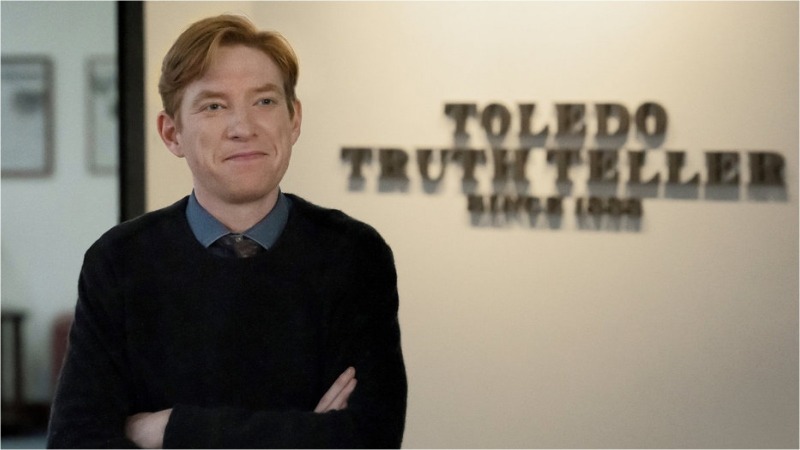There Are Plenty of Reasons to Subscribe to Peacock’s The Paper
(Photo: Aaron Epstein/Peacock)
Most of the marketing materials you’ll see for Peacock’s new comedy The Paper will probably tout its connection to previous NBC megahit The Office. After all, the show hails from the same creators (Greg Daniels and Michael Komen), features one of the long-running comedy’s secondary characters, and is told in basically the same mockumentary format that was groundbreaking when The Office did it, but is seemingly everywhere now. But its spin-off status is actually the least interesting thing about this series, which is kinder, warmer, and altogether more aspirational than its predecessor ever managed. And at the end of the day, The Paper doesn’t need its The Office-related bona fides to succeed and generally shines brightest when you manage to forget that the two are connected at all.
To its credit, this series is a spin-off only in the vaguest, most technical sense. It turns out that Dunder Mifflin was purchased by a Toledo-based company called Enervate immediately before the pandemic. Now they deal in a whole different kind of paper: A gangbusters bathroom tissue business known as Softees and the slowly decaying Toledo Truth Teller, a formerly successful local newspaper that now boasts a mere handful of employees and has to share office space with the toilet paper sales team in a building that it used to own entirely. The same documentary crew who filmed The Office heads to Toledo to make a follow-up, and voila, The Paper is born.
The story kicks off with the arrival of Ned Sampson (Domhnall Gleeson), the Truth Teller’s new Editor-in-Chief, a former (yes, really) toilet paper salesman with a journalism degree who dreams of returning the storied newspaper to its glory days as a trusted community resource. (His role model is literally Clark Kent instead of Superman) He takes over a business that’s little more than wire-service stories, internet clickbait, and online ads, with a staff that’s woefully inexperienced and seriously lacking in resources.
Interim managing editor Esmeralda (Sabrina Impacciatore) is churning out poorly written Buzzfeed-style sponcon content at TTTOnline, with just two reporters keeping the print edition running: former Stars and Stripes veteran Mare (Chelsea Frei) who wants to do real journalism but spends most of her time fitting wire stories into the pre-existing space on their ad-filled front page and the aging Barry (Duane R. Shepard Sr.), a relic from the old days of the paper’s greatness who now spends more time napping than breaking stories.
The paper’s non-editorial staff is comprised of Nicole (Ramona Young) in circulation, Detrick (Melvin Gregg) in ad sales, and a shockingly robust accounting division that includes Adelola (Gbemisola Ikumelo), Adam (Alex Edelman), and Oscar (Oscar Nunez), who also happened to work at another paper company most of us are already familiar with.
Luckily for the Truth Teller, Ned’s enthusiasm for their mission (and his belief in their communal capabilities) is contagious. He encourages the non-editorial staff to break out of their established roles and give journalism a try, promising bylines of their own and a rededication to community as the Truth Teller returns to its local roots. And as they spearhead local investigations into corporate fraud, political waste, and product safety, the group slowly begins to transform into something greater than the sum of its parts.
-

-

-

-

-

-

-

-

-

-

-

-

-

-

-

-

-

-

-

-

-

-

-

-

-

-

-

-

-

-

-

-

-

-

-

-

-

-

-

-








































